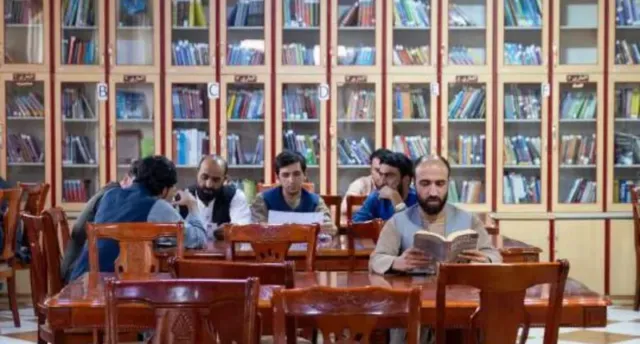
Taliban Bans Books by Women in Afghan Universities
The Taliban government in Afghanistan has removed books authored by women from the university teaching system. This action is part of a broader ban that also prohibits the teaching of human rights and topics related to sexual harassment within educational institutions.
Approximately 140 books written by women were among a larger collection of 680 titles deemed “of concern” by the Taliban. These books were flagged for allegedly containing content that contradicts Sharia law and the policies of the Taliban regime. Examples of the removed books include titles like “Safety in the Chemical Laboratory.”
Furthermore, universities have been instructed to cease teaching 18 specific subjects, with a Taliban official stating that these subjects are “in conflict with the principles of Sharia and the system’s policy.” The exact nature of these 18 subjects remains unspecified.
This decree represents the latest in a series of restrictive measures implemented by the Taliban since their return to power in Afghanistan four years ago. These measures have disproportionately impacted women and girls, limiting their access to education, employment, and other fundamental rights.
The international community has widely condemned these actions, expressing grave concerns about the erosion of human rights and the suppression of academic freedom in Afghanistan. Critics argue that the Taliban’s policies are designed to systematically marginalize women and stifle intellectual discourse.
The removal of books and the ban on certain subjects are seen as a deliberate attempt to reshape the educational landscape in Afghanistan according to the Taliban’s strict interpretation of Islamic law. This move is expected to have a significant impact on the quality and scope of higher education in the country.
The long-term consequences of these policies are still unfolding, but experts predict that they will further isolate Afghanistan from the global community and hinder the country’s development. The restrictions on education are also likely to exacerbate existing social and economic inequalities.
The Taliban’s actions have sparked outrage among human rights organizations and advocacy groups, who are calling for increased pressure on the regime to respect the rights of all Afghans, including the right to education and freedom of expression. The situation remains highly volatile, and the future of education in Afghanistan hangs in the balance.
The ban raises serious questions about the future of academic freedom and women’s rights under Taliban rule, as the country continues to face international scrutiny over its human rights record. This is a developing story and will be updated as new information becomes available.
Disclaimer: This news article is based on publicly available information and may be subject to updates.




